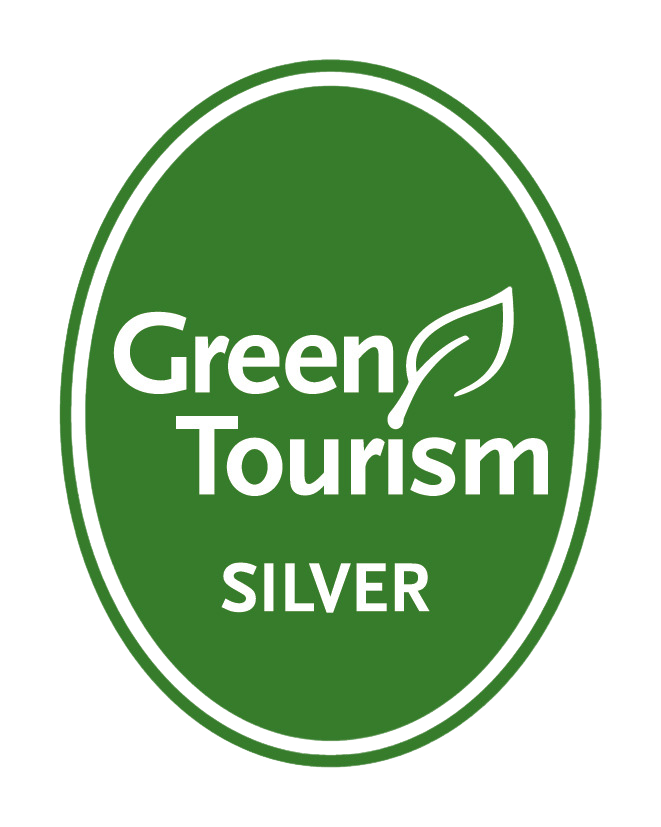
In celebration of World Earth Day 2025, we are delighted to spotlight some of our members who have placed sustainability and responsible tourism at the heart of their business.
Visit Isle of Wight is a DMO dedicated to showcasing the Isle of Wight to audiences on the UK mainland and overseas. In this feature, the DMO discusses its commitment to sustainability, the importance of protecting the island’s unique natural environment, and what it means to be a UNESCO Biosphere Reserve.
What does sustainability mean to Visit Isle of Wight, and why is it so important?
At Visit Isle of Wight, sustainability is not just an initiative; it’s a commitment to creating a better future for our Island, our visitors, and our community.
Climate change has a significant impact on tourism, from changes in weather reducing footfall for outdoor activity attractions and impacting revenue, to changes to the physical landscape causing issues with infrastructure and limited access to major tourist villages. These are just some examples of why we need to worry about climate change.
We need to work together to have cleaner beaches, greener landscapes, and eco-friendly attractions. Plus, by all doing our bit, it will attract eco-conscious travellers who want to explore a destination that’s committed to preserving its natural beauty for generations to come.
We recognise that the tourism industry plays a vital role in protecting the environment, and we are proud to lead by example in making the Isle of Wight a beacon of sustainability.
As one of only seven UNESCO Biosphere Reserves in the UK, what role does Visit Isle of Wight play in influencing businesses, visitors and the local community to apply these principles?
Promoting Sustainable Travel Options
One of our primary goals is to reduce the carbon footprint of visitors travelling to and around the Isle of Wight. On the Island, we support sustainable transport initiatives, such as the Island Line’s trains and Southern Vectis’ local bus services, which are increasingly adopting electric and hybrid vehicles. As part of our commitment, we are part of the Community Rail Partnership. We actively encourage visitors to explore the Island using public transport, cycling routes, and walking trails through our marketing campaigns and visitor resources such as our online mapping.
Developing Eco-Friendly Standards
Visit Isle of Wight plays a key role in driving sustainability across the hospitality sector. We have developed the ‘Wheel of Approval Award’ and the ‘IOW Green Tourism Award’ to support businesses in being recognised for their environmentally friendly practices and support for active modes of travel, such as cycling. We promote these efforts through our website, social media and newsletters.
Supporting Local Producers and Sustainable Dining
Sustainable tourism is not just about travel – it’s also about supporting local economies. Visit Isle of Wight collaborates with local food producers, restaurants, and markets to champion sustainable, locally sourced produce. We actively encourage visitors to choose restaurants and eateries that prioritise seasonal, organic, and low-carbon footprint ingredients.
Protecting the Island’s Natural Environment
As custodians of one of the UK’s most biodiverse regions, Visit Isle of Wight is deeply committed to environmental protection. We engage with the UNESCO Biosphere Reserve Committee and regularly support initiatives such as ‘Project Seagrass’ through our Walking Festival. We encourage visitors to engage in wildlife-friendly activities, and our campaigns raise awareness about the importance of protecting natural habitats while also encouraging participation in beach cleans, conservation programmes, and sustainable outdoor activities.
Sustainable Events and Festivals
The Isle of Wight is renowned for its vibrant calendar of events and festivals, and Visit Isle of Wight is committed to ensuring that its events are environmentally responsible. We manage the Isle of Wight Walking Festival, which aims to showcase the Island through a series of hosted walks led by local volunteer walk leaders. This showcases the Island, not only as a world-class walking destination but also to support the shoulder seasons and encourage people to visit outside of peak seasons.
Partnering for Sustainability
Our sustainability journey would not be possible without the collaboration of local stakeholders, businesses, and community organisations. Visit Isle of Wight is a proud member of several sustainability networks and partnerships, both locally and nationally. We work closely with organisations such as Natural Enterprise, the Isle of Wight Council, National Landscapes (formerly known as AONBS), and the Isle of Wight Chamber of Commerce.
We are also active participants in national tourism sustainability initiatives, ensuring that our practices meet or exceed industry standards for responsible tourism. By working in unison with our partners, we can amplify the impact of our sustainability efforts and contribute to the long-term resilience of the Island’s tourism industry.
Can you share an example of a successful sustainability initiative?
The assets on the Visit Isle of Wight website were dated, with many walking, running, and cycle maps being old PDFS that are no longer fit for purpose and inaccessible. OutdoorActive had been selected to provide a platform that creates online maps. It offers points of interest on maps that promote local businesses, such as attractions, hotels, restaurants, and other local establishments. The mapping system also allows people to create their PDF version, making it printable, and to create audio guides, making it accessible to all.
The project aimed to create an online platform that promotes sustainable and active travel, and develops branded routes for walking, cycling and running. It aims to promote local businesses and attractions on the Isle of Wight as ‘points of interest’ along key routes. In the past 12 months, we’ve had 1,056,791 map views with 22,750 actions for following routes and 1,866 downloadable maps.
How do you measure the impact of your sustainability efforts?
As an organisation, we measure the impact of our operations through the Green Impact Awards, and we have just been awarded a Gold for the second year in a row. You can find examples of our efforts on our website. We are working to develop a climate action plan which will include the impacts on our operations, steps to address those impacts and how we will monitor and report our progress.
We use external third-party economic impact data to track trends, such as the mode of transport used by visitors, which includes sustainable travel options. We collate data for our Green Bus pass scheme, part of the Isle of Wight Green Tourism Awards, and can demonstrate the CO2 emissions saved. We measure the website’s usage and use online mapping software to track trends.
What can the industry do better to encourage and promote sustainable travel?
Businesses need to ensure that they have information available on their websites to promote travel to their business in a sustainable manner. If appropriate, offer incentives for visitors, i.e 5% off booking if visitors arrive by public transport. Get involved in sharing local schemes and travel information with visitors while they’re on the island to drive behavioural change.
What government support does the industry need to ensure that sustainable travel becomes the norm?
We’re already seeing some support from a tourism perspective with the launch of the Regenerative Tourism Guide by VisitBritain, which supports local businesses. However, this scratches the surface. Foremost, there needs to be a clear investment plan for better infrastructure, primarily to support companies that face the ‘last mile’ challenge. Of course, funding is always an issue; however, if there were incentives for people to use sustainable travel that the government then subsidised, this could influence behaviour change.
A final point would be to provide education and awareness campaigns, led nationally, to inspire travellers to choose sustainable options that showcase the real benefits – less stress, slow travel, and the preservation of our protected spaces, such as UNESCO Biosphere Reserves.








